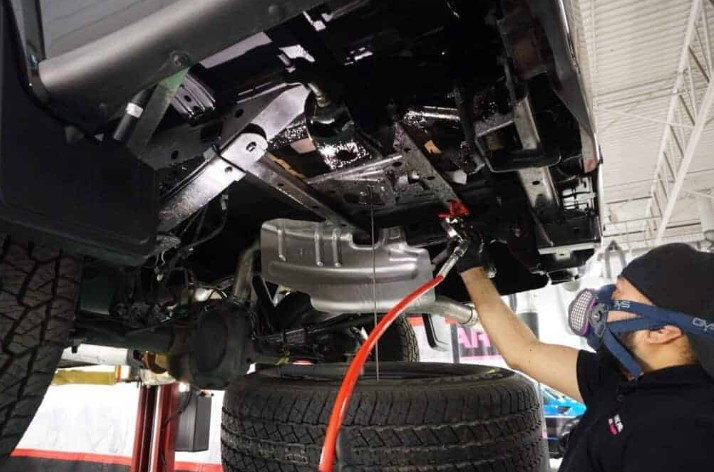
If you regularly travel and want to ensure that your vehicle is protected from the ever-present threat of rust and the damage it can cause, it is important to know the options available.
Part of the challenge when travelling is that you are bound to encounter a wide variety of road conditions that present different variables that affect the underside of your car differently. How can you know which rust protection option is best for your vehicle?
Oil-Based Undercoatings
How it Works: Oil-based undercoatings work great as a rust inhibitor because of how well they can be applied to the underside of vehicles. It soaks deep into crevices and hard-to-reach places, displacing any water and creating a protective barrier to prevent future rust.
Why It’s Good for Travellers: Undercoatings of this nature provide great protection against salt, mud and water. This type of protection is helpful for those who are travelling in coastal or wintery conditions.
Cons: Needs reapplication every 1-2 years.
Wax-Based Rustproofing
How it Works: Wax-based rust proofing creates a thick, durable barrier that protects the underside of vehicles. It adheres well to metal and can withstand consistent exposure to corrosive and damaging elements such as salt and dirt.
Why It’s Good for Travellers: Perfect for vehicles that are either stored outdoors or exposed to the elements for long periods (such as motorhomes and other off-road and travel-specific vehicles).
Cons: Can be tricky to apply at home and may need professional installation to ensure proper coverage of the entire surface.
DIY Rustproofing Kits
How it Works: You can get almost any type of rustproofing kit in a DIY version, giving you the option to apply the treatment at home. Whether oil-based or wax-based, you can do all of the prep and application work yourself, in the comfort of your own home.
Why It’s Good for Travellers: DIY options are more cost-effective because you do not have to pay for the application in a professional setting. This can be a significant draw for those looking to save money for their travels.
Cons: DIY applications are not always installed properly and if they are improperly applied, they will not be as effective. In some cases, they may even trap water, causing more rust issues down the road.
Professional Rustproofing Kits
How it Works: Professional application of rust prevention measures, regardless of the type you choose, guarantees that the prep and application are done according to the manufacturer’s specifications, guaranteeing the best possible results.
Why It’s Good for Travellers: You can get other options for rust prevention through a professional that you can’t apply on your own. This includes electronic rust inhibitors and rubberised undercoatings.
Cons: Professional applications are always more expensive, which can be a significant drawback for many travellers.
Rust Protection for Travellers
Mark from Preserve & Protect says “Protecting your vehicle against rust is a great way to guarantee that your vehicle enjoys a long and useful lifespan.” Make sure to research the type of application you are considering, whether or not you can apply it yourself and how well it protects your vehicle.